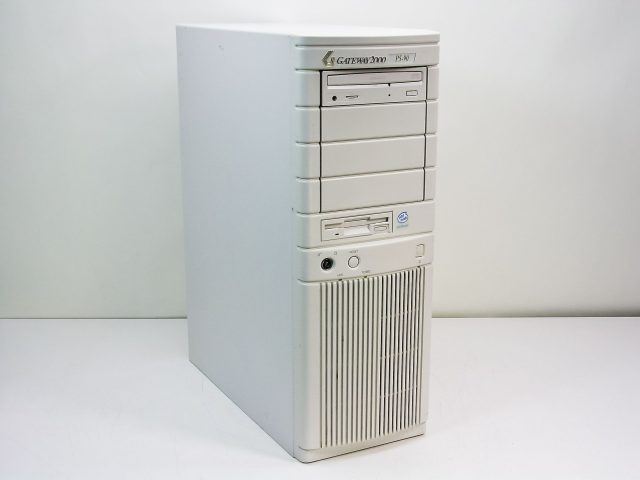For Christmas of 1994, my family bought a brand new Gateway P5-66 tower. It came equipped with a first generation Pentium processor running at 67MHz (with a now ludicrously large 800 nanometer process size, a startlingly low 16W max TDP, and, yes, the FDIV bug), 8 megabytes of EDO RAM, and a 512MB hard disk drive. It was also the first computer we’d ever had without a 5.25" floppy disk drive—meaning that I had to spend a whole day with our now-obsoleted dual-disked 386DX/25, 385DX/25, copying all my files on 5.25" disk to 3.5".
It also came preloaded with Windows 3.1, but even then there were whisperings about Microsoft’s upcoming "Chicago" operating system, which didn’t yet have a formal release name. I’d read the articles in PC Magazine and other contemporary rags. I wasn’t yet cruising the Internet—in fact, I had only a vague conception of what the term "information superhighway" meant—but if I had, I could have read the Chicago speculation there on USENET and maybe even a few primitive, barely functional World Wide Web sites. But on that Christmas day of 1994 as I stared at the Gateway 2000 desktop wallpaper and watched the music videos included on the Gateway 2000 system CD, I felt like I was living the multimedia dream.
Of course, Windows 3.1 was Windows 3.1, with all its weirdness and foibles, and my multimedia dream wasn’t terribly grand even by the standards of the day. I still spent almost all of my time in DOS, since that’s where most of my games and applications ran (including Telemate, my preferred BBS term program). But even as I stuck with the DOS command line I’d grown up with, those whisperings of "Chicago" grew louder and louder. Soon, it was said, Microsoft will release the operating system to end all operating systems. Soon, we’d leave all this text mode stuff behind, ditching our config.sys and autoexec.bat files for good and living full-time in a modern graphical shell. Trumpet Winsock and manual IRQ assignments for hardware and environment variables and careful low memory management will be a thing of the past. Chicago would save us all—not just the crazy-rich (or plain crazy) who could afford to switch to OS/2, but all of us.
Read 24 remaining paragraphs | Comments










